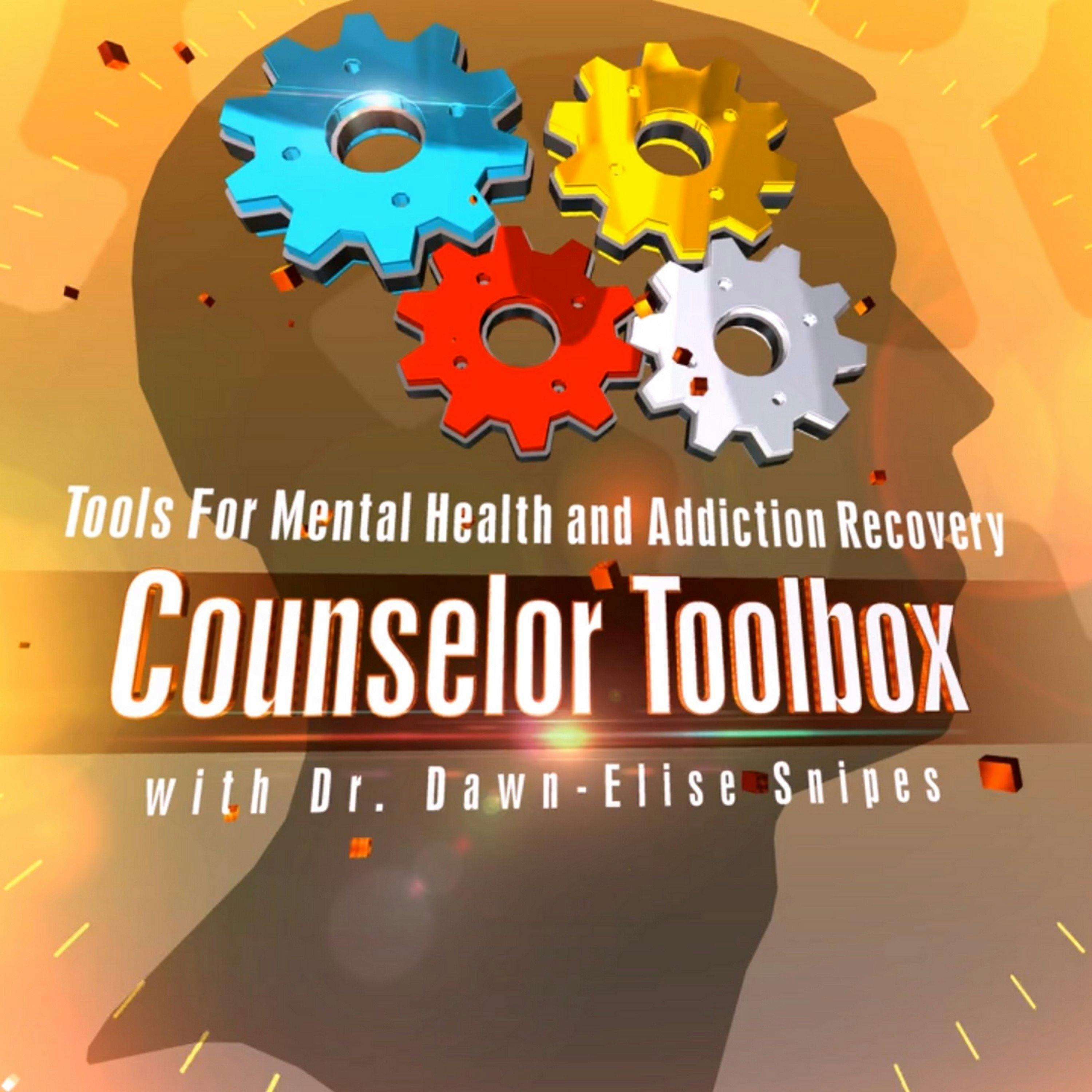|
Description:
|
|
Sponsored by BetterHelp. Clinicians, sign up with BetterHelp to increase your bookings and work from teh comfort of your own home. https://hasofferstracking.betterhelp.com/aff_c?offer_id=20&aff_id=2373
Co-Occurring Disorders Current Evidence Based Treatments
Dr. Dawn-Elise Snipes
Objectives
~ Review current research on evidence based and promising practices for Co-Occurring Disorders
Intro
~ Most people with addictions also have other co-occurring issues
~ Mood disorders
~ Pain
~ PTSD
~ Effective treatment requires concurrent treatment of all presenting biopsychosocial issues
CBT
~ Cognitive Behavioral Therapy
~ Addiction
~ Anxiety
~ Dementia
~ Depression
~ Eating Disorders
~ Insomnia
~ OCD
~ Schizophrenia focuses on motivational enhancement for agreed recovery goals, appropriate use of coping skills, working with symptoms, understanding experience of psychosis, strengthening adaptive view of self, personal/emotional issues or comorbid disorders, relapse prevention, and family or social reintegration.
Mindfulness Based Interventions
~ MBIs consistently outperform active control conditions, such as health education, relaxation training, and supportive psychotherapy.
~ Mindfulness treatments were shown, in general, to have similar effectiveness with first-line psychological (and psychiatric) interventions for children and adults when compared directly and superior to waitlist and control conditions with relatively little variation across disorders
~ mindfulness was equivalent or superior to other active treatments for addictions, smoking, depression, pain, and weight/eating
Relaxation Therapies
~ Relaxation therapies use physiologic techniques (e.g., deep breathing or progressive muscle relaxation) to regulate the sympathetic/parasympathetic balance and reduce symptoms of arousal seen in chronic pain
~ Biofeedback was associated with pain reduction, reduced depression, disability, and muscle tension and improved coping in chronic musculoskeletal pain, headache and fibromyalgia
Virtual Reality
~ Through cognitive training, sensory immersion and social skill training, rehabilitation through VR therapies helps patients improve QoL
~ VR assisted burn and nonburn wound care reduced opioid need by 39% compared to no VR, while levels of pain and anxiety were similar
~ In people with dementia, VR may provide enjoyable, leisurely activities that may promote QoL and psychological well-being
~ Depression and suicidality are characterized by excessive negative imagery and impoverished positive imagery. One study of 79 people positive mood and well-being increased significantly post-VR-intervention (Edge of the Present-EOTP). Hopelessness scores and negative mood decreased, and sense of presence was high
~ Anxiety and phobias: Exposure/guided rehearsal/efficacy
~ PTSD
Transcranial Direct Current Stimulation
~ Transcranial direct current stimulation (tDCS) is a non-invasive neuromodulatory technique
~ Multiple factors can alter tDCS after-effects, including the polarity, duration, and frequency of stimulation; current density (i.e., current intensity/electrode surface area); stimulation/return electrode locations; neuroanatomy; underlying pathology/state; and co-administered drugs/treatments
Transcranial Direct Current Stimulation
~ Recurrent pain leads to maladaptive neuroplasticity. tDCS probably effective in reducing neuropathic, fibromyalgia, migraine, post-operative pain
~ tDCS may benefit motor function and likely improves cognition in people with Parkinson’s
~ tDCS improves motor rehabilitation in chronic and subacute stroke
~ tDCS is effective in treating depression in MDD without drug resistance
~ tDCS is probably effective for reducing auditory hallucinations in schizophrenia
~ tDCS probably effective in decreasing relapses or craving in alcohol addiction
Nutritional Interventions
~ Vitamins, minerals and several phytonutrients influence the expression of Brain Derived Neurotropic Factor (BDNF) and serve as modifiable determinants of systemic inflammation
~ 13 main nutrients implicated in the pathophysiology of depression and systemic inflammation include: Folate, iron, long chain omega-3 fatty acids, magnesium, potassium, selenium, thiamine, vitamin A, vitamin B6, vitamin B12, vitamin C, vitamin D and zinc.
~ Symptoms associated with deficiencies, especially when subclinical, are nonspecific and include fatigue, irritability, aches and pains, decreased immune function and heart palpitations
Nutritional Interventions
~ 47% of studies that found a positive impact of a dietary intervention
~ Gut health is increasingly understood as critical for brain health. Along with being nutrient-dense sources of vitamins and minerals, two components of plants are relevant to mental health, but not well represented in the literature: fiber (feeds gut bacteria) and phytonutrients (antioxidants)
~ Vitamin D is deficiency is associated with pain and is correlated with muscle fatigue
~ Skin pigmentation, obesity, northern latitudes and poor diet lead to Vitamin D deficiencies.
Sleep
~ Sleeplessness has been shown to induce a generalized state of hyperalgesia, anxiety and depression
~ Extended sleeplessness is associated with HPA-Axis dysfunction
~ There are common neurobiological processes in sleep disturbances, addiction and mood disorders which may reflect neurobiological dysfunction and may not spontaneously recover leading to an increased risk of relapse
~ Sleep hygiene interventions, sleep studies and multidisciplinary intervention can be useful.
Acupuncture
~ A systematic review with meta-analysis of acupuncture analgesia in the emergency setting found acupuncture “provided statistically significant, clinically meaningful, and improved levels of patient satisfaction with respect to pain relief in the emergency setting
~ In meta-analysis of 17,922 patients using acupuncture therapy for chronic musculoskeletal pain , osteoarthritis, headache and migraine, acupuncture was significantly better than both placebo and usual care. 90%of acupuncture benefit persisted at 12 months
Massage
~ Single dose of massage therapy provided significant improvement in post-operative pain and anxiety compared to active comparators in surgical pain populations
~ Manual therapy including massage was effective for pain, stiffness and physical function in chronic pain
Bright Light Therapy
~ Dosing: intensities of 5,000–10,000 lx, measured at the level of the eyes, and a therapeutic distance of 60–80 cm from the light box for 30 minutes
~ Seasonal Affective Disorder
~ Potentially effective at improving both disordered-eating behavior (binge and night eating) and mood
~ Parkinson’s BLT significantly improves motor dysfunction including rigidity, tremor, nocturnal movements and postural imbalance; depression and anxiety; sleep dysfunction including insomnia, excessive daytime sleepiness and overall fragmentation of sleep/wake cycle
Bright Light Therapy
~ Bipolar disorder BLT significantly reduced the severity of depression and patients who were not on psychotropic drugs revealed significantly decreased disease severity (pregnancy/postpartum??)
~ Cautions:
~ Evening administration of BLT can increase the incidence of sleep disturbances
~ People who are bipolar may switch to hypomania during therapy
~ Suicidality may sporadically occur early in the treatment course
~ Menstrual irregularities have been reported
Summary
~ CBT and Mindfulness are still the gold standard to address the cognitive and HPA-Axis aspects of a variety of disorders
|
 More
More
 Religion & Spirituality
Religion & Spirituality Education
Education Arts and Design
Arts and Design Health
Health Fashion & Beauty
Fashion & Beauty Government & Organizations
Government & Organizations Kids & family
Kids & family Music
Music News & Politics
News & Politics Science & Medicine
Science & Medicine Society & Culture
Society & Culture Sports & Recreation
Sports & Recreation TV & Film
TV & Film Technology
Technology Philosophy
Philosophy Storytelling
Storytelling Horror and Paranomal
Horror and Paranomal True Crime
True Crime Leisure
Leisure Travel
Travel Fiction
Fiction Crypto
Crypto Marketing
Marketing History
History

.png)
 Comedy
Comedy Arts
Arts Games & Hobbies
Games & Hobbies Business
Business Motivation
Motivation




